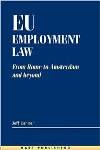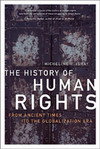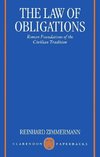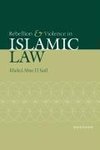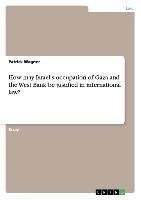
-
 Anglický jazyk
Anglický jazyk
How may Israel's occupation of Gaza and the West Bank be justified in international law?
Autor: Patrick Wagner
Essay from the year 2002 in the subject Law - European and International Law, Intellectual Properties, grade: 1 (A), University of Kent (Kent Law School), 13 entries in the bibliography, language: English, abstract: The conflict between Israel and the Palestinians... Viac o knihe
Na objednávku
14.76 €
bežná cena: 16.40 €
O knihe
Essay from the year 2002 in the subject Law - European and International Law, Intellectual Properties, grade: 1 (A), University of Kent (Kent Law School), 13 entries in the bibliography, language: English, abstract: The conflict between Israel and the Palestinians over the occupation of the West Bank and Gaza is one of the most complicated conflicts in the world. Attempts to resolve the conflict have failed in the past and a resolution seems unlikely to emerge in the near future. Partly, this is due to the fact that the situation is extremely complex and the conflict very old. History, politics and international law together with religion, nationalism and pride are entangled to form this conflict. For both sides the conflict has reached an emotional level where belief is more important than rational decisions.
A lot has been written about the Israel-Palestine conflict and in recent years more and more critique of Israel has emerged. This is particularly interesting as usually every criticism of its actions or policies is turned down by Israel as anti-Semitism. One thus has to be extremely careful when writing about Israel although international law seems to be relatively clear about the 1967 occupation of Gaza and the West Bank.
In order to examine the legality of the occupation, this paper will discuss the situation from both angles and look at the sources of international law relevant to this case. These are the Charter of the United Nations in general and the United Nations Security Council Resolution 242 in particular. In addition, customary international law has developed to a jus cogens, prohibiting the use of force at all for settling international disputes.
Finally, this paper shall conclude that any justification of the occupation is doubtful and there is little evidence in international law that might legitimise Israel's actions. And even if the initial occupation could be legitimised under Article 51 of the UN Charter as an act of self-defence, the prolonged occupation would still lack any legal basis.
- Vydavateľstvo: GRIN Verlag
- Rok vydania: 2007
- Formát: Paperback
- Rozmer: 210 x 148 mm
- Jazyk: Anglický jazyk
- ISBN: 9783638747202
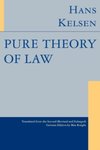
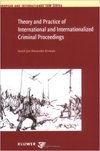

 Nemecký jazyk
Nemecký jazyk 
